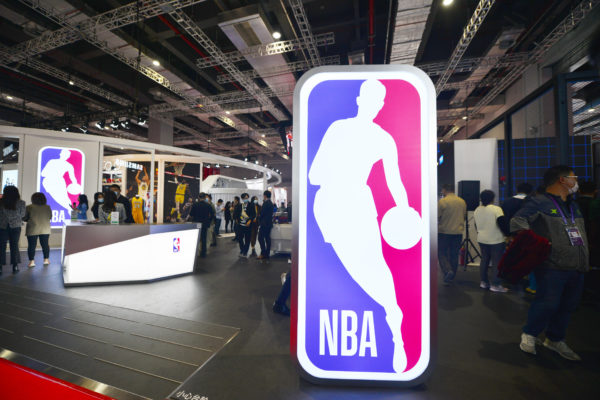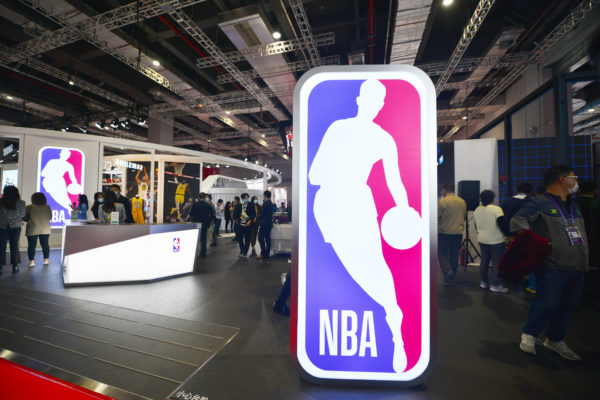‘What Good Reason Is There to Play the Anthem Before Every Game?’: Reactions Mixed as NBA Mandates Every Team Play National Anthem
There are mixed reactions to the National Basketball Association’s recent mandate that the national anthem must be played before games.
“With NBA teams now in the process of welcoming fans back into their arenas, all teams will play the national anthem in keeping with longstanding league policy,” NBA Chief Communications Officer Mike Base said in a statement.

The NBA released the statement on Wednesday, Feb. 10, a day after Dallas Mavericks owner Mark Cuban confirmed to ESPN his team would not play the anthem before home games anymore. He said he’d made the decision after consulting NBA commissioner Adam Silver and the anthem had not been played at 13 home games this season.
New Orleans Pelicans Coach Stan Van Gundy lauded Cuban’s decision. “This should happen everywhere. If you think the anthem needs to be played before sporting events, then play it before every movie, concert, church service and the start of every work day at every business,” Van Gundy tweeted. “What good reason is there to play the anthem before a game?”
But conservative fans and pundits attacked Cuban for his decision. “The national anthem has become the whipping post for woke elites with a cause. Since they can’t figure out how to actually solve problems, they attack something beloved and unrelated: the anthem. Then they pat themselves on the back, telling each other how much they ‘care,’” Texas Rep. Dan Crenshaw tweeted.
Though the NBA rulebook requires players stand for the national anthem, the policy has not been enforced in the wake of the league’s support for its players participation in the Black Lives Matter movement. In June 2020, Cuban said he supported his players’ right to peacefully protest.
“If they were taking a knee and they were being respectful, I’d be proud of them. Hopefully I’d join them,” Cuban said. “Whether it’s holding their arm up in the air, whether it’s taking a knee, whatever it is, I don’t think this is an issue of respect or disrespect to the flag or to the anthem or to our country. I think this is more a reflection of our players’ commitment to this country and the fact that it’s so important to them that they’re willing to say what’s in their heart and do what they think is right.”
According to USA Today, playing the national anthem at sports events dates back to the 1800s. Marc Ferris, author of “Star-Spangled Banner: The Unlikely Story of America’s National Anthem,” said the first time it was documented being played at a sporting event was at a baseball game in 1862 during the Civil War. Then it became even more popular during World War II.
“We’re a patriotic country and we’re different from the rest of the world in that respect,” Ferris said. “As we grew and as we prospered, people wanted to show their patriotism.”
Fans are still divided on the subject. “Look, if folks hate America….they can leave. Lots of other countries they can move to where they don’t need to be bothered with a national anthem at a sporting even,” tweeted @firm_way.
Twitter user @isaacappelt wrote “there a difference btwn liking america and forcing the national anthem on us every time we watch basketball. forced patriotism is ridiculous, and it’s not what the founding fathers wanted.”
“W. I’m not a trump supporter and I support BLM. But the anthem is supposed to be something that unites us and honors those who gave us our freedoms. I think this is a good decision,” wrote user @feliciosbeard.
“Old white men always want this country to stay behind in the times,” responded user @ReinaObra. “Bulls–t from the NBA. I hope Cuban refuses and just pays the fines. (Or does something like playing it so softly it can’t be heard, while still meeting the letter of the law),” added user @TheRealTMOTS.
Cuban also released a statement in response to the NBA’s decision.
“We respect and always have respected the passion people have for the anthem and our country. But we also loudly hear the voices of those who feel that the anthem does not represent them. We feel that their voices need to be respected and heard, because they have not been,” Cuban said. “Going forward, our hope is that people will take the same passion they have for this issue and apply the same amount of energy to listen to those who feel differently from them. Only then we can move forward and have courageous conversations that move this country forward and find what unites us.”

